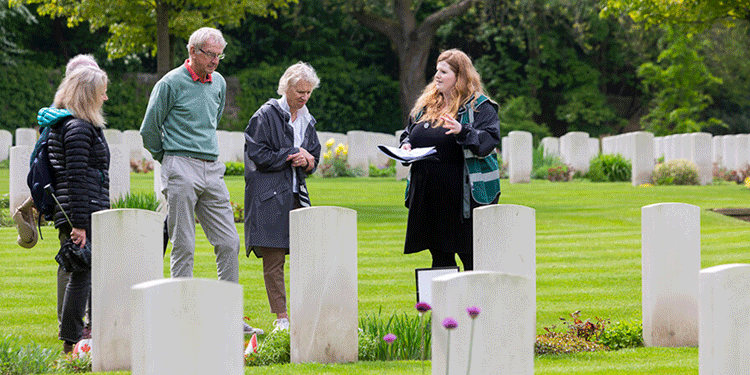
Mark Willett was born in Loughton, Buckinghamshire, in 1896, the sixth child of Charles and Elizabeth (née Smith) Willett. He had 6 siblings – Bertie, Henry, Frederick, Florence, Anne and Arthur. The Willett family were farm labourers around Loughton, later working in various roles in Wolverton locomotive and carriage works - Mark’s father was a smith striker in Wolverton works.
In 1891, Charles and Elizabeth and their three children Bertie, Henry and Frederick lived on Rectory Lane, Loughton but by 1901 had moved to Pitcher Lane, Loughton and remained in Loughton for the rest of their lives.
The Willetts came from a long line of farm workers and Mark followed in the family tradition and found work on a farm starting as a plough boy.
Mark enlisted at Oxford in the Oxford and Bucks Light Infantry, later transferring to the 1/21st (County of London) Battalion (First Surrey Rifles).
On mobilisation, they went to the St Albans area and in March 1915 after only a few weeks of training, were drafted to France and landed at Le Havre.
In 1916 they fought during the German attack at Vimy Ridge, and were in action in the Somme in The Battle of Flers-Courcelette capturing High Wood. This battle (15-22 September 1916) was the first time in history that tanks were used although of the 49 supporting the offensive, only 15 made it to the front line.
High Wood was so named as it sits on a high point which commands a large area of ground where the Battle of the Somme was taking place. Little was left of the wood itself, however - just tree stumps in a morass of mud. After an initial successful advance by British Dragoons and Indian Lancers in July, fierce fighting for the wood continued for two months. At the Battle of High Wood, to close a gap between the British troops who had occupied High Wood at great cost, the day before, the First Surreys were ordered to attack. Alone and unsupported, they captured Starfish Redoubt, a fortified German position, but the battalion was all but annihilated by artillery and machine gun fire, and only some 60 men came out unscathed.
Sadly, Mark, in 'B' company, was not one of the survivors. Mark Willett was 19 when he was killed on 15th September 1916. His body was never identified and he is commemorated on the Thiepval Memorial and also on both the Loughton and Shenley war memorials in Buckinghamshire.
He was awarded, posthumously, the British War Medal and Victory Medal.
At All Saints Church, Loughton, Bucks, on Thursday 15th September 2016 a Quarter Peal of 1260 All Saints Place Doubles was rung on the centenary of the death of Rifleman Mark Willett aged 19, of the 1st/21st Bn. London Regiment, (1sy Surrey Rifles), the third Loughton man to die in the Great War.


